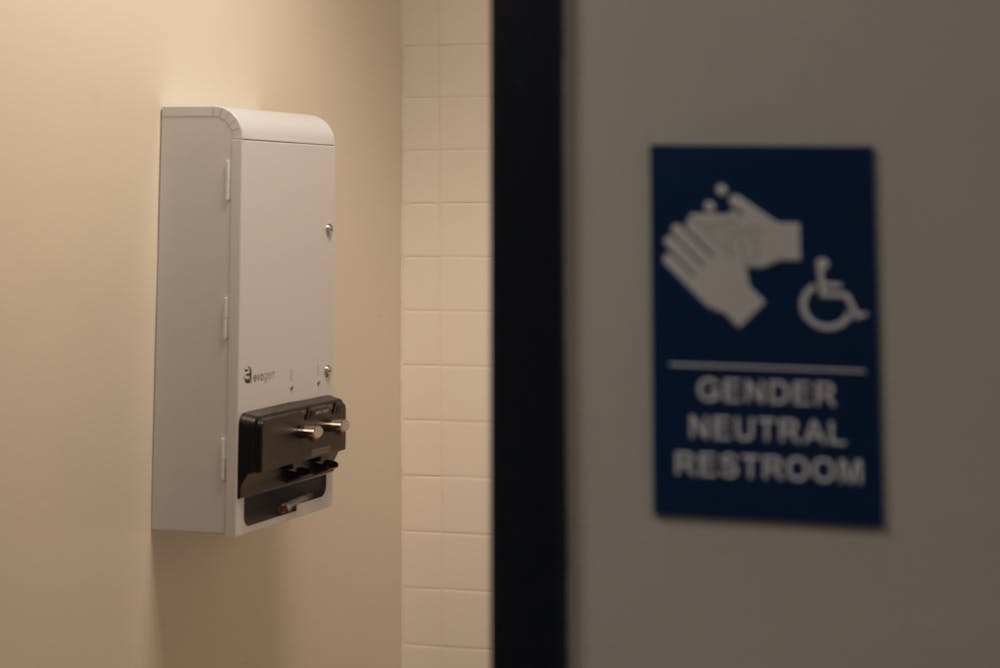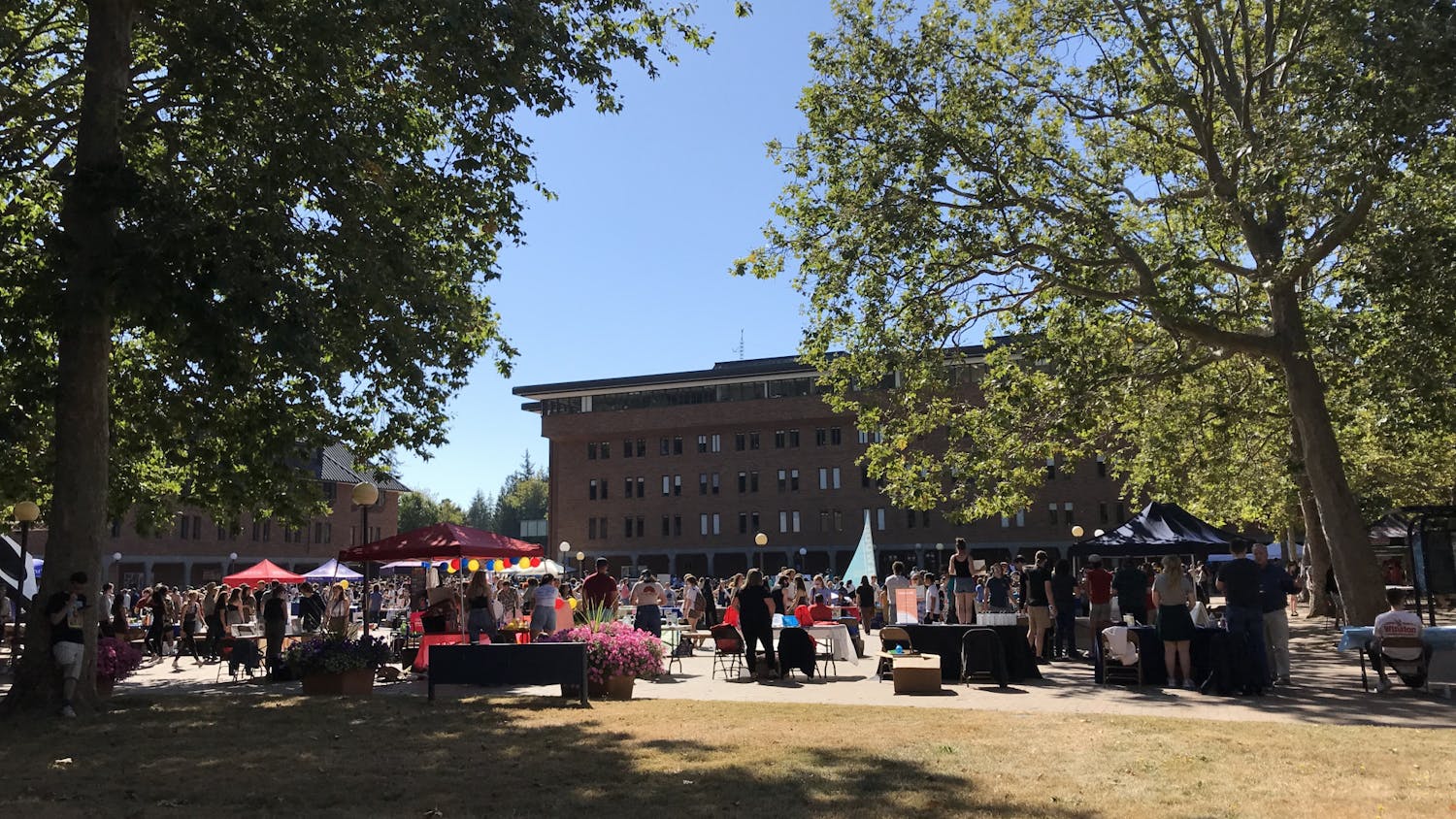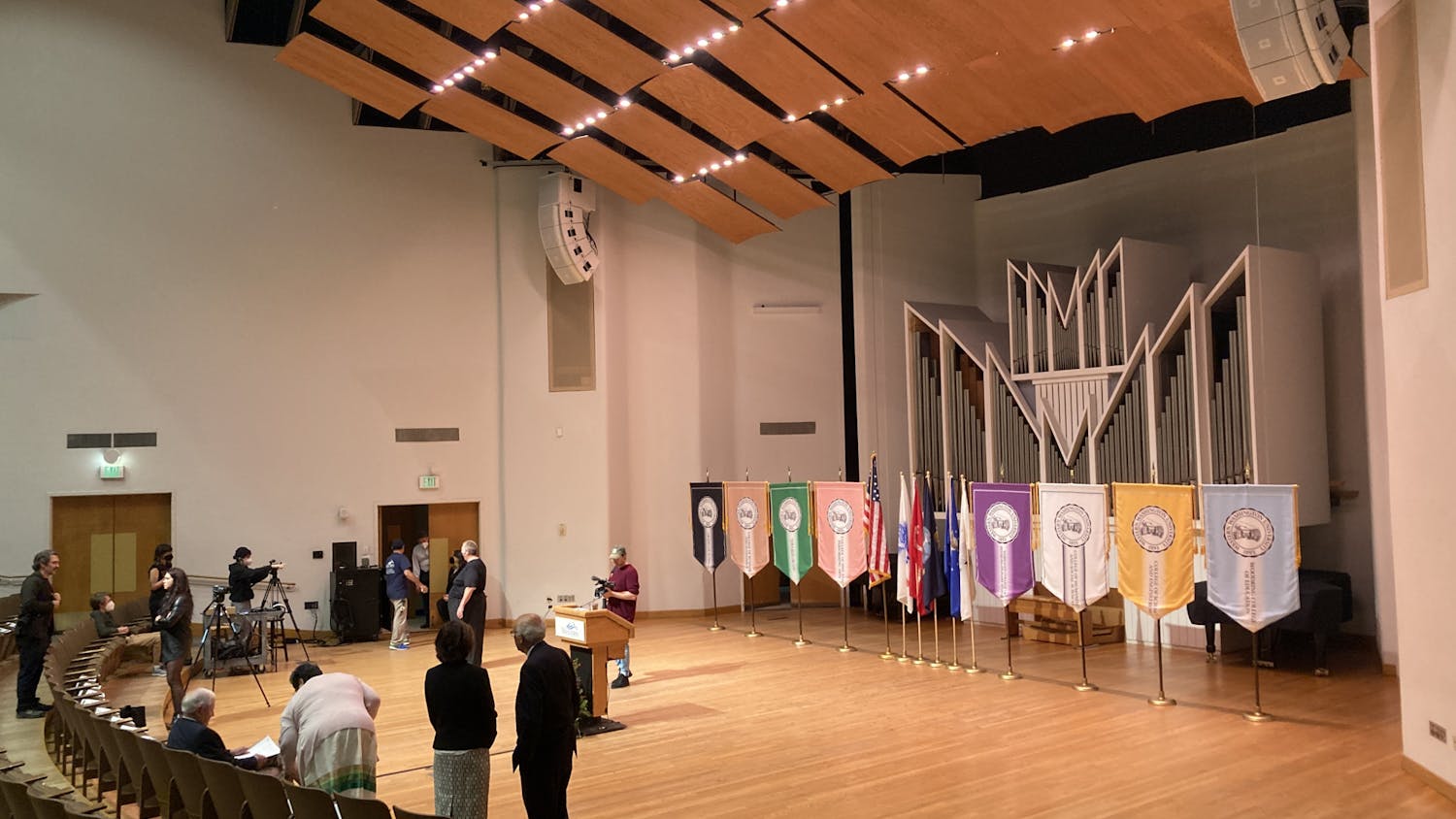Since returning to campus for fall quarter, many Western Washington University students have noticed that the menstrual products offered in dispensers in restrooms are now free.
Students can access free period products in men’s, women’s and gender-neutral restrooms. Dispensers in restrooms have both pads and tampons available.
Wayne Galloway III is the director of facilities services at Western.
Galloway said in an email that the state of Washington passed HB 1273 during the pandemic and Gov. Inslee signed it on May 3, 2021.
Galloway said the bill required all higher education institutions to install menstrual product dispensers in female and gender-neutral restrooms before the start of the 2022-2023 academic year. Additionally, higher education institutions must offer tampons and pads at no cost to the university community.
Galloway said that the project for free period products was assigned to academic custodial services to install and maintain.
“The installation started in May 2022 and was completed by August 2022,” Galloway said. “The custodial teams in all areas will be ensuring that they are maintained going forward.”
Galloway said that facilities services were not able to provide free products prior to COVID-19. Instead, they provided the resource at a cost through contracts with a vendor.
“There are many [people] on campus, including students from Sustainability and myself, who have been desiring to provide menstrual products at no cost to all at WWU,” Galloway said. “We are very excited to support the WWU community in this way.”
Some Western students say they appreciate the free access to menstrual products on campus.
“It’s nice to have free feminine hygiene products,” first-year Lily Airey said. “I have had friends in emergencies who have needed a tampon or pad and got to get one for free.”
Airey also said she believes it’s important to have free period products in gender-neutral and men’s bathrooms because people may menstruate even if they don’t identify as female.
Jean Lee, an assistant professor in the English department, specializes in Afro-Caribbean and Indo-Caribbean feminisms. Lee said the legislation that’s happening at the local level, as well as some state-funding policies, are responsible for the new changes.
Lee said SB 5147 got rid of the period tax. This law got rid of sales and use taxes on feminine hygiene products in Washington state.
She also mentioned HB 1273, the bill concerning free menstrual hygiene products in schools.
“These are all just examples of the ways that the Washington Legislature is trying to make healthcare more equitable,” Lee said. “What is happening at Western is not a singular event.”
Lee said this program is important because she believes it has the potential to protect students’ dignity.
Lee said she supports the university providing this service because reducing costs and anxieties can help students, especially genderqueer people, to have a better experience at school.






